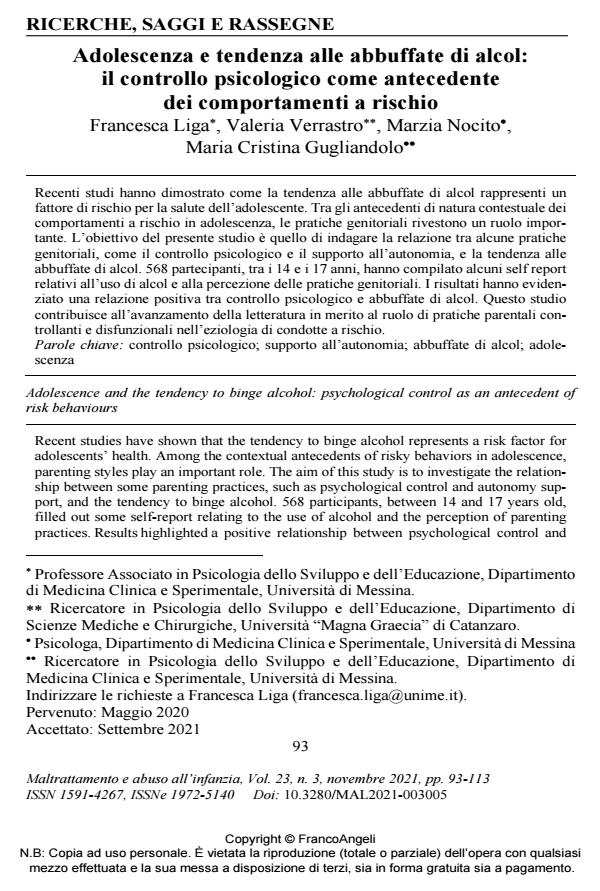Adolescence and the tendency to binge alcohol: psychological control as an antecedent of risk behaviours
Journal title MALTRATTAMENTO E ABUSO ALL’INFANZIA
Author/s Francesca Liga, Valeria Verrastro, Marzia Nocito, Maria Cristina Gugliandolo
Publishing Year 2021 Issue 2021/3
Language Italian Pages 21 P. 93-113 File size 233 KB
DOI 10.3280/MAL2021-003005
DOI is like a bar code for intellectual property: to have more infomation
click here
Below, you can see the article first page
If you want to buy this article in PDF format, you can do it, following the instructions to buy download credits

FrancoAngeli is member of Publishers International Linking Association, Inc (PILA), a not-for-profit association which run the CrossRef service enabling links to and from online scholarly content.
Recent studies have shown that the tendency to binge alcohol represents a risk factor for adolescents’ health. Among the contextual antecedents of risky behaviors in adolescence, parenting styles play an important role. The aim of this study is to investigate the relation-ship between some parenting practices, such as psychological control and autonomy sup-port, and the tendency to binge alcohol. 568 participants, between 14 and 17 years old, filled out some self-report relating to the use of alcohol and the perception of parenting practices. Results highlighted a positive relationship between psychological control and the tendency to binge alcohol. This study contributes to the advancement of the literature on the combination of contextual factors in the etiology of alcohol use, highlighting the role played by controlling and dysfunctional parental practices.
Keywords: psychological control; autonomy support; alcohol use; adolescence
Francesca Liga, Valeria Verrastro, Marzia Nocito, Maria Cristina Gugliandolo, Adolescenza e tendenza alle abbuffate di alcol: il controllo psicologico come antecedente dei comportamenti a rischio in "MALTRATTAMENTO E ABUSO ALL’INFANZIA" 3/2021, pp 93-113, DOI: 10.3280/MAL2021-003005